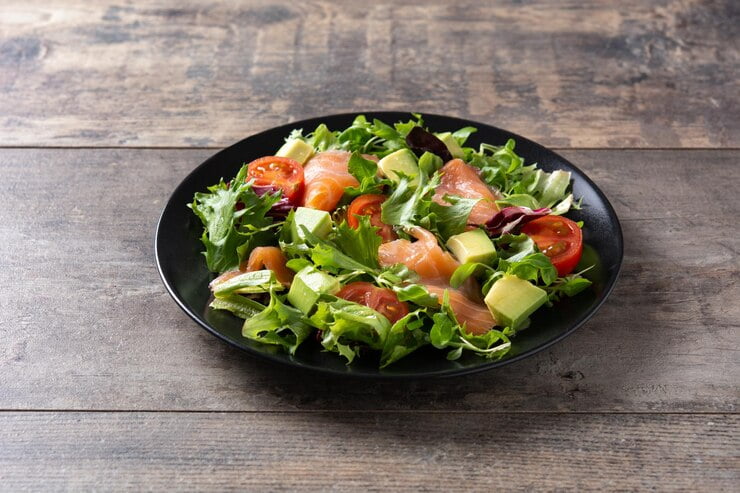If you want to lose weight, build muscle, feel better, stay in shape, or accomplish any other fitness goal, you need to focus on nutrition.
The problem is that nutrition is a complex and nuanced subject. There’s a lot to learn about the topic, especially because nutritional needs and dietary guidelines vary between individuals.
You don’t need to have an advanced degree to understand more about nutrition. In fact, you can make great progress in your own level of understanding simply by acknowledging and addressing some of the most common nutrition misconceptions that hold people back.
The Biggest Nutrition Misconceptions:
These are some of the biggest nutrition misconceptions holding people back from physical fitness or health improvements:
1. All food companies are the same
It’s tempting to think that all food companies are offering the same types of products. For example, some may think buying chicken nuggets from one brand isn’t really nutritionally different than buying chicken nuggets from a different brand.
In reality, food development companies process and produce foods differently, leading to differing nutritional values between brands.
For example, Griffith Foods is a global food product development company specializing in high-quality food ingredients, focused on creating nutritious, delicious, and sustainable food products for their customers. They’re committed to creating better products and a better, more sustainable world.
2. Fatty foods can make you fat
If you’re trying to lose weight, or if you’re just trying to stay in shape, you may be tempted to avoid foods that are high in fat. After all, fat in your body is what you’re trying to avoid.
But dietary fat has little to do with fat storage; instead, fat storage in your body is almost exclusively the result of eating too many calories, regardless of where those calories came from.
It’s true that fatty foods are higher in calories, and eating too much of them can cause weight gain – but the same is true of any high-calorie food, regardless of whether it contains fat or not.
Related Resource: Tips For Supporting A Loved One That Is On A Diet
3. Fruits are fine to eat in unlimited amounts
Fruits and vegetables are some of the most nutritious types of foods you can eat because they’re loaded with different vitamins and minerals.
However, that doesn’t mean you should eat unlimited amounts of fruit and vegetables. In fact, many fruits are exceptionally high in sugar, and eating too many of them can be problematic for your health.
4. Meal timing makes a big difference
You may have heard from a friend or family member that if you avoid eating after a certain time, or if you have many small meals throughout the day, you’ll see better weight loss results.
This is a misconception. For the most part, when you eat food doesn’t make a big impact on your weight loss or fitness goals.
There are some exceptions; for example, it’s important to eat some food after a workout to facilitate faster recovery. The type of food you eat and the volume of food you eat have a much bigger impact than your timing.
5. Calories are the only thing that matters to losing weight
Calories play a significant role in fat storage in your body. If you consume more calories than you expend, you’re going to store the additional energy as fat. If you burn more calories than you consume, by exercising more and eating less, you’ll end up losing fat.
But some people take this truth too far and believe that calories are the only thing that matters for weight loss. If you want to be successful, you’ll also need to focus on macro nutrition, vitamin and mineral intake, food quality, and more.
6. Carbs should be avoided
Carbohydrates only provide energy to the body; they don’t serve the vital roles that protein and fat do in the body. They also have the potential to spike insulin levels, and because they’re tasty, they’re easy to overeat.
But some people have taken this to mean that you should avoid carbohydrates entirely. This is a misconception; reducing your intake of simple sugars and eating carbohydrates in moderation is the correct approach.
7. Eating healthy is expensive
Nutritious foods aren’t necessarily more expensive than their unhealthy counterparts, despite misconceptions that suggest otherwise.
There are certainly examples of junk food that are cheap and readily available, and healthy foods that are overpriced. But there are plenty of healthy options that are perfectly affordable, and less expensive than most unhealthy indulgences.
8. Eating healthy is hard
It’s also a misconception that eating healthy is hard, either because food preparation is difficult or because the food is perceived as tasting inferior to unhealthy food. But it doesn’t take much time or experimentation in the kitchen to learn that healthy food can be delicious and easy to prepare.
Addressing Misconceptions
These aren’t the only misconceptions that can impact how you view nutrition and health. In fact, as you talk to more people about nutritional needs, you’ll probably be introduced to a host of other misconceptions.
How can you tell what’s a misconception and what is the truth at the moment? Your best course of action is to do some digging on any nutrition-related truism you hear; look for peer-reviewed, large-scale studies that prove or disprove the axiom. At the very least, don’t assume that everything you hear about nutrition is true.
Read ALso:

































